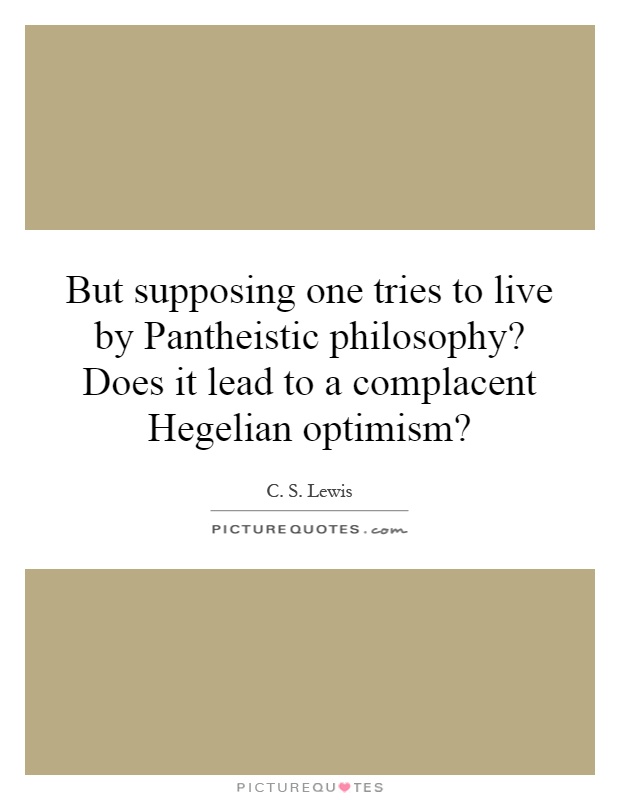But supposing one tries to live by Pantheistic philosophy? Does it lead to a complacent Hegelian optimism?

But supposing one tries to live by Pantheistic philosophy? Does it lead to a complacent Hegelian optimism?
C.S. Lewis, a renowned Christian apologist and author, was critical of Pantheistic philosophy and its implications on human behavior and morality. In his works, Lewis often argued against the idea of Pantheism, which posits that God is immanent in all things and that the universe is divine. He believed that this worldview could lead to a complacent Hegelian optimism, where individuals become passive and resigned to their circumstances, believing that everything is predetermined and ultimately good.One of the main concerns Lewis had with Pantheism was its tendency to blur the lines between good and evil. In a Pantheistic worldview, everything is seen as a part of the divine and therefore inherently good. This can lead to a lack of moral accountability, as individuals may believe that their actions are ultimately inconsequential in the grand scheme of things. This complacency can result in a lack of personal responsibility and a disregard for the consequences of one's actions.
Furthermore, Lewis argued that Pantheism can lead to a sense of fatalism, where individuals believe that their fate is predetermined and that they have no control over their lives. This can result in a passive acceptance of suffering and injustice, as individuals may believe that everything happens for a reason and that there is no point in trying to change the status quo.












 Friendship Quotes
Friendship Quotes Love Quotes
Love Quotes Life Quotes
Life Quotes Funny Quotes
Funny Quotes Motivational Quotes
Motivational Quotes Inspirational Quotes
Inspirational Quotes